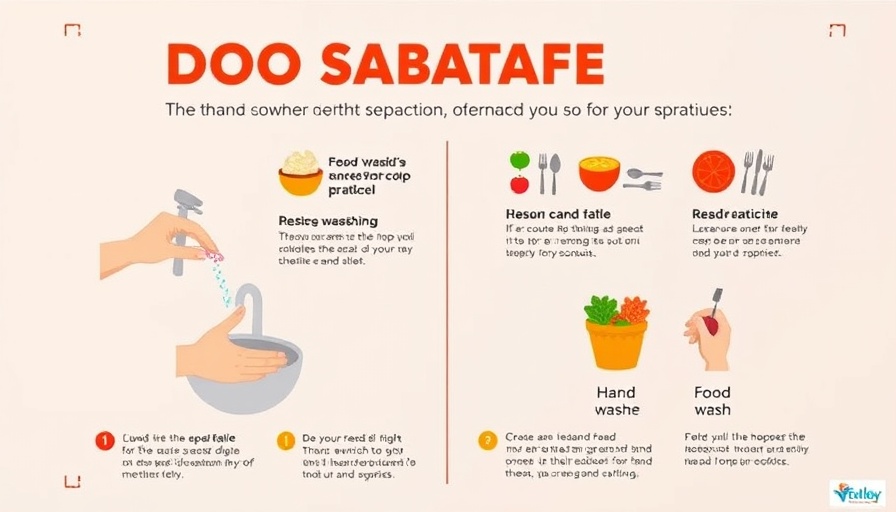
Understanding the Impact of Foodborne Illnesses
Foodborne illnesses pose a significant threat to public health, impacting millions of individuals globally each year. Contaminated food not only causes immediate discomfort but can also lead to long-term health issues and increased healthcare costs. With the rise of global trade in food products, the complexity of contamination sources has intensified. Understanding the importance of safe food handling practices can mitigate risks associated with these illnesses.
Key Guidelines for Safe Food Handling
Safe food handling is crucial for preventing foodborne outbreaks. Here are some essential guidelines that everyone should follow:
- Wash Your Hands: Proper hand hygiene is the first defense against foodborne pathogens. Always wash your hands with soap and water for at least 20 seconds before preparing food, after using the restroom, and after handling raw meat and poultry.
- Separate Raw and Cooked Foods: Cross-contamination is a leading cause of foodborne outbreaks. Use separate cutting boards and utensils for raw meat, seafood, and ready-to-eat foods to prevent the spread of bacteria.
- Cook Foods to Safe Temperatures: Different foods have specific safe cooking temperatures. For instance, poultry should be cooked to 165°F (75°C), while ground meats should reach at least 160°F (71°C).
- Store Foods Properly: Refrigeration slows the growth of pathogens. Keep perishable foods at temperatures below 40°F (4°C) and ensure they are consumed or discarded before their expiration dates.
The Importance of Hygiene in Food Preparation
Ensuring a clean food preparation environment is just as vital as the food itself. Regularly sanitize kitchen surfaces and equipment used in food preparation. The use of sanitizing agents can help to eliminate harmful bacteria and viruses that may linger on countertops or cooking devices.
Future Insights: The Role of Technology in Food Safety
Emerging technologies, including AI and blockchain, are set to revolutionize food safety and traceability. AI can predict foodborne outbreaks by analyzing data patterns, while blockchain can enhance transparency in the food supply chain, ensuring safer consumption. With ongoing advancements, consumers and food producers alike can remain vigilant in combating foodborne illnesses.
Common Misconceptions About Food Safety
A significant misconception is that food safety concerns are limited to restaurants or commercial kitchens. In reality, home kitchens can also be a source of outbreaks, particularly if individuals are unaware of proper handling techniques. By debunking these myths, the public can be more proactive in ensuring their health and safety.
Actionable Tips to Improve Food Safety Practices
Simple actions can greatly enhance food safety:
- Invest in a food thermometer to accurately check cooking temperatures.
- Educate yourself about food expiration dates and storage techniques.
- Encourage others to adopt safe food handling practices by sharing information and resources.
Conclusion: Commit to Safe Food Handling
By understanding and implementing safe food handling practices, individuals can significantly reduce the risk of foodborne illness outbreaks. Awareness and education are the keys—commit to these guidelines in your daily life for better health outcomes. Whether you are a home cook or a professional, prioritizing food safety is a responsibility we all share. Remember to share this knowledge with friends and family to expand the impact of your efforts.
 Add Row
Add Row  Add
Add 




 Add Row
Add Row  Add
Add 

Write A Comment